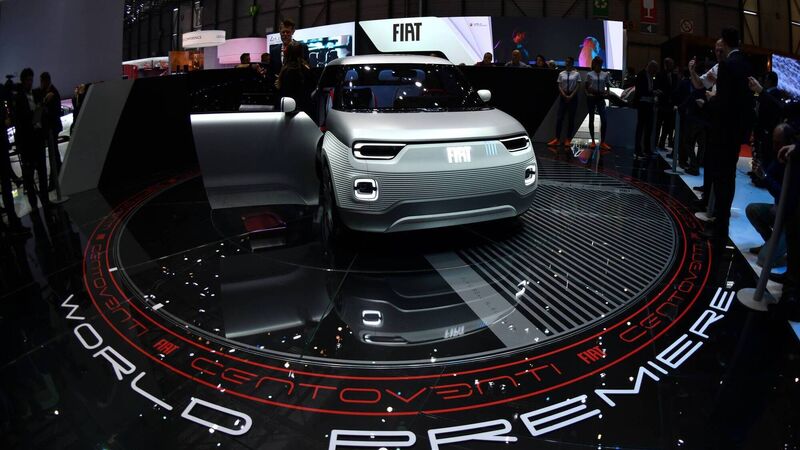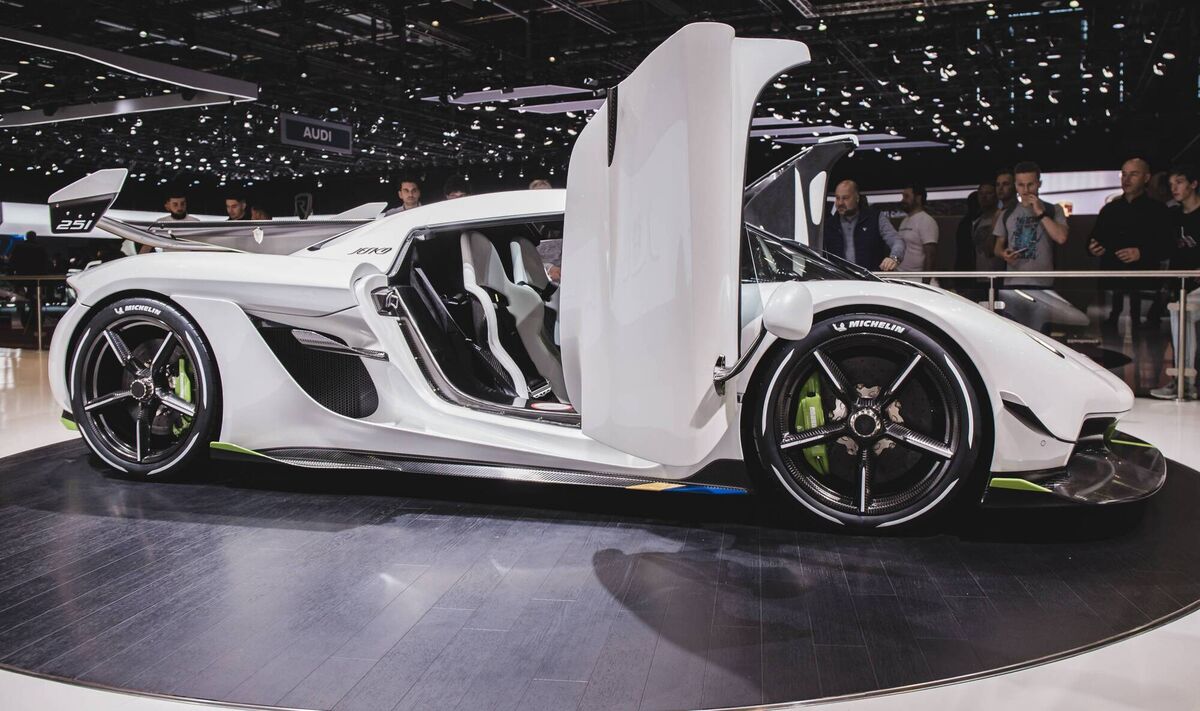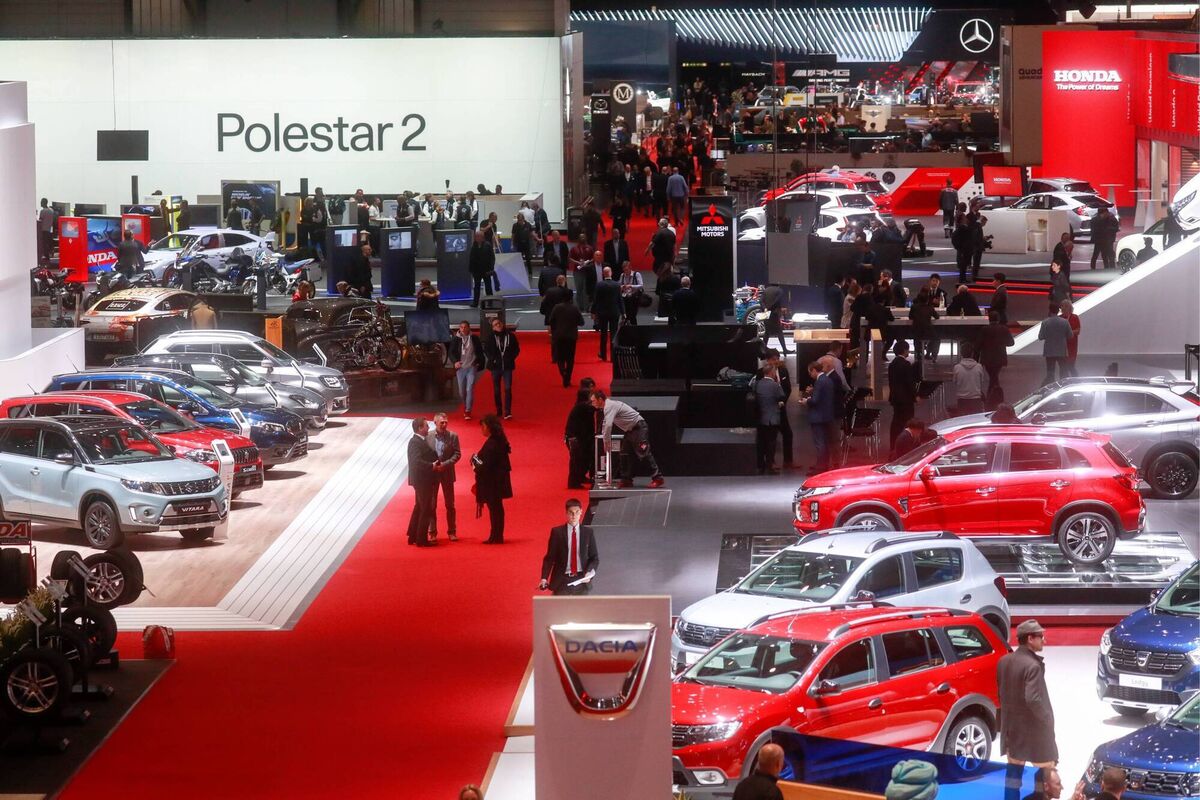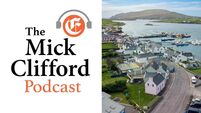Pádraig Hoare: Time for a green light for the sustainable energy of the future

Imagine hopping off an electric tram and into a self-driving electric car that is ready and waiting to take you on the final leg of your journey.
Imagine your electric car, now used merely for leisure pursuits as comfortable public transport trumps all, can be used to transfer stored energy, to power your home when you come back from a journey.
Imagine not having to turn on gas heating in the dead of winter for all hours of the night just to stay somewhat warm, because your home is already capable of staying cosy by itself, with little energy expended, and no bills to worry about.
These exciting scenarios are not the realm of science fiction, but very real possibilities being explored in the high ends of research and development when it comes to sustainability, durability, and the environment, according to Tyndall National Institute’s newly-appointed head of energy research, Professor Brian Norton.
The immediate past-president of Dublin Institute of Technology and most recently principal of the city campus of Ireland's first technological university, TU Dublin, Prof Norton is an internationally-renowned academic and author in the global energy community.
He is not prone to hyperbole or grandiosity, which is why his reasoned and understated matter-of-fact commentary is worth listening to.
“My role is head of energy research across Tyndall, which includes the International Energy Research Centre, but also looking at energy research across Tyndall generally, as well as MaREI [Science Foundation Ireland Research Centre for Energy, Climate and Marine]," he said.
“My role is to grow the energy-research activity that supports job creation. We want to make sure Ireland has a lead in this topic and fundamentally contributes to a sustainable future, climate mitigation, etc. The colleges I have joined have a substantial track record in the field, and we are looking to form internationally leading activity," said Prof Norton.
“We are trying to square that circle of environmental sustainability but also employment and economic viability, as well as engaging with industry. That is spanning everything from buildings to networks, to systems, to business models. It is quite a broad focus. There are particular challenges as well as particular opportunities that the Irish system provides.”
Identifying and seizing opportunities for Ireland in the context of a new dawn for green and sustainable industries will be a challenge, but one which the country can meet, if the political and public will is there to support it, according to Prof Norton.

“There are different places that have different opportunities. Norway, for example, is very good on electric vehicles because they have a sovereign wealth fund, that came out of North Sea oil, that they have invested. There are places that are far more densely structured, which means heat networks are more readily realised," he said.
“Everything is situational, and Ireland needs to take advantage of the opportunities and advantages it has. Ireland is not the best, necessarily, when it comes to sustainability and green activity, but it is definitely not the worst either. An example is the high penetration of wind, which is a geographic opportunity, as one of the windiest places in Europe. A lot of these things come out of circumstance, and making the best of that, so that is where Ireland has a strong lead,” he said.
“Certainly there is a very strong commitment in the programme for government. The challenge, as in all these things, is in effectiveness and speed of delivery. The expression that words are cheap is a cliche of course, but the programme for government is sound. The challenge is to set up the structures, the mechanisms, the business processes,” he said.
A recent Supreme Court judgment shows the need for very detailed plans and ways of doing things, he said.
Friends of the Irish Environment won its case against the State last month as the Supreme Court ruled that the Government's plan to address climate change was too aspirational and lacked concrete detail.
Prof Norton said: “I think it is understood that a very clear executable plan is needed right from local initiatives to the European Green New Deal, that you’re not just saying vaguely that we will do this; you are showing who is going to do what and exactly when, and thinking through the inadvertent consequences of implementing these plans.”
The short-termism and "deciding-for-now" way of doing things historically will not cut the mustard in the next 30 years, he said.
“The way we construct economics tends to be on the initial cost of things, whereas fundamentally, you should be looking at the sustainability and life cycle of things. There is no good reason why you cannot construct on a life-cycle basis. When you introduce incentives into a market to encourage change into a market, the question then is how you take those out of the market.
“You would be better to regulate on a level playing field, that everyone has to build to this standard, that you have an international financial system that takes account of the sustainability of things in the way it is constructed. You see this in green finance, green shipping, a whole lot of green sectors. You are then making your decisions with those factors already built into it.
“I think politicians are to some extent hostage to decision-making that is all about initial cost, rather than looking at the life cycle of it. They are almost not to blame; they are a victim of the system. We need to move to a more sustainable financial system," said Prof Norton.
“To be fair, there is evidence of that happening, if you look at international bodies now, and look at what gets financed at preferential rates, such as at the European Investment Bank, there are things more environmentally sustainable. An initial cost market appeals to certain kinds of vested interests. There are people who make money out of that kind of short-termism.”
The retrofitting of hundreds of thousands of homes will not be easy but is a goal that is well worth pursuing, said Prof Norton.
For example, retrofitting Cork's housing stock would solve fuel poverty but would cost €3.8bn over 10 years, according to experts from a Cork City Council event last month.
An event hosted by the council, featuring members of housing software firm RetroKit, heard that 157,000 homes across Cork city and county could be upgraded to a BER rating of B2 or better.
A BER rating is an energy label for homes, rating from A to G on a scale. A-rated homes are the most energy-efficient and will tend to have the lowest energy bills, according to the Sustainable Energy Authority of Ireland (SEAI).
Under the mass retrofitting plan, 25% of those homes would be lifted from fuel poverty, which is described as spending at least 10% of a household income on keeping a home warm.
While retrofitting would require major investment and funds, it would also have a massive impact on overall health and well-being, the event heard.
Prof Norton admitted there is a lot of work to be done from the beginning of any programme, and that is has to be done properly and efficiently.
“It is not simply saying ‘here is a grant for refurbishment’. That is part of it, but the challenges are more in implementation than in high-level policy.
“When it comes to homeowners, there is complexity involved when it comes to retrofitting. It depends on whether the person owns the house, whether they privately let it, whether there is a social landlord — there is a whole spectrum of things that come into play.
“If you look at the homeowner, for example, can the energy savements be offset against mortgage payments, so you have a finance system that effectively doesn’t cost you more because the savings are built into it? That sets you a threshold, and you have got to do the refurbishment within that threshold. Perhaps the grant is the additional piece to make that threshold work.
“In a social housing provider, they are often concerned about fuel poverty, and looking at long-term stock, they are looking at it on a much more life-cycle basis, and so doing things that would not cost the tenant on the basis that they could afford the rent and the stock will last longer. The private rental sector has different motivations altogether. It is complicated, depending on the sectors you are in,” he said.
The current models of how we see transport are going to change quite radically, with electric and self-driving cars merging eventually, Prof Norton predicted.
“Electric vehicles, we tend to think of it as the electrification of current vehicles. But you also have the idea of autonomous vehicles at the moment. The driverless vehicle of the future and electric vehicles are going to coincide, I believe.
“Perhaps the model of the future will be like Dublin Bikes in that you take the vehicle that is charged, rather than you going and charging your vehicle. It might then drive you where you need to go. The current models of how we see transport are going to change quite radically," he said.
“I can see the Luas and the light rail in Cork eventually, that will take people to the end of the line and then there may be a whole lot of vehicles ready to take you on the final leg of your journey.
“The boundaries between public and private transport are going to blur. That will have a whole lot of social positives, for example with blind people able to drive. There is a real social inclusion around that,” he said.

Radical changes around personal mobility are going to happen and it may be that vehicle-ownership becomes for leisure purposes.
“The bicycle began as a means of transport, then it became a means of leisure, and now it is back to being a mode of transport again," said Prof Norton. "Private vehicles may become a thing of leisure and how you get to places will be a combination of public transport and last-mile autonomous vehicles that are charged locally. The paradigms are going to change very radically, I believe.
“If you look at people who are using trams and then may use the city bike system, some of those models are there. With the advances in electric and autonomous vehicles, it is not a million miles away to see that. There is a campus in Berlin with vehicles on a fixed track, for example. There are plenty of examples of trial models. I think it’s very likely,” he said.
Hydrogen-powered vehicles will also play a major role in replacing fossil-fuel-laden bigger modes of transportation.
“In my view, hydrogen vehicles are the bus or the truck, and the electric vehicles are the car,” he said.
“We are thinking currently, not about the future — that mindset will begin to change," he added.
Worries about how the electricity grid will cope with a mass influx of electric vehicles and buildings such as data centres are valid, but sustainable solutions are there to combat the issues, according to Prof Norton.
The concept of the 'prosumer' — a hybrid of consuming and producing — will alleviate energy strains, he predicted.
“What you are going to see are buildings that produce energy as well as consuming energy. We are looking at the concept of ‘prosuming’, which is that we are producers as well as consumers.
“We will have apps that allow us to sell our electricity to others, or we will have someone that does it for us. You are looking at a different system again than the current one, where the question is if the network can survive," said Prof Norton.
“We will see electricity in a network and we will be much more passive consumers of it. It will be a genuine network where each building and home will contribute at different times and draw and store their energy in different time slots.
“There is even a view of people who may own an electric vehicle, and charging it all day, can bring it home and plug it into your house. Certainly with a small apartment, and very low energy consumption, the electric vehicle could be the one that is actually the storage medium. The jury is out as to whether that is a good idea or not, but it is a possibility.”
The question is not whether the grid can cope, but whether we have enough distributed storage capacity at the various scales, whether electricity can be stored at the point of generation, and whether it can be a business, he said.
One thing is certain: The sustainability economy will provide plenty of excellent employment opportunities, Prof Norton said.
“There are a lot of new industrial products that need to come into these systems. A lot of these are small, high-value products that could be manufactured in Ireland, and can be sold to the world.

“In regard to the concept of the prosumer, there are a lot of tools and a lot of apps, a lot of software for peer-to-peer trading, such as when generating energy from your home, or buying energy. All these things can be export-based that you can sell to other places.”
The sustainable economy and renewable energy economy can become as important to Ireland as the pharmaceutical industry has been in the past 50 years, he said.
“It is a lot broader that you might imagine. There is a very broad set of opportunities here.”
The European commitment to climate change and the green economy is encouraging but needs careful implementation and cannot be bogged down by bureaucracy and short-term thinking, Prof Norton said.
“The jury is out, as such. What I see is a lot of commitment but a lot of that really gets down to the practical detail, and the speed of execution. If we can filter down though the bureaucracy of organisations and who is responsible for what in organisations, then it can be done.”
The speed of response around the coronavirus across Europe shows how it can be done, he said.
“The top-down thing needs to be there, but they need to get it right on the ground, as in what is needed, and work from that perspective. You need to mobilise at a local level, especially around housing and buildings where the State and local authorities have a role. That creates momentum and the interest needed in a sector that makes it more attractive from a price point," he said.
“Climate issues are to do with people. Often we talk about saving the planet — the planet will continue, but the question is whether the planet will be somewhere people can live. This is about people and sustainability.”





